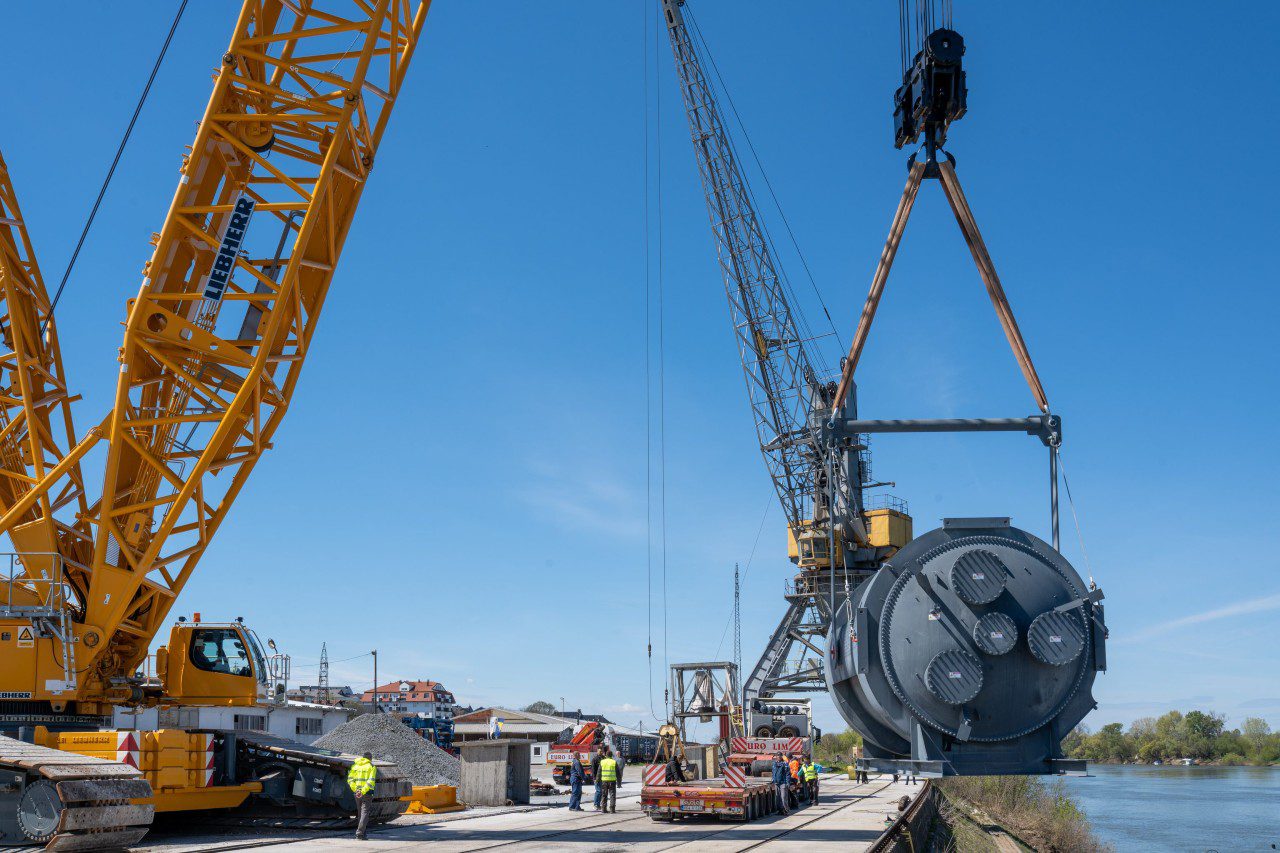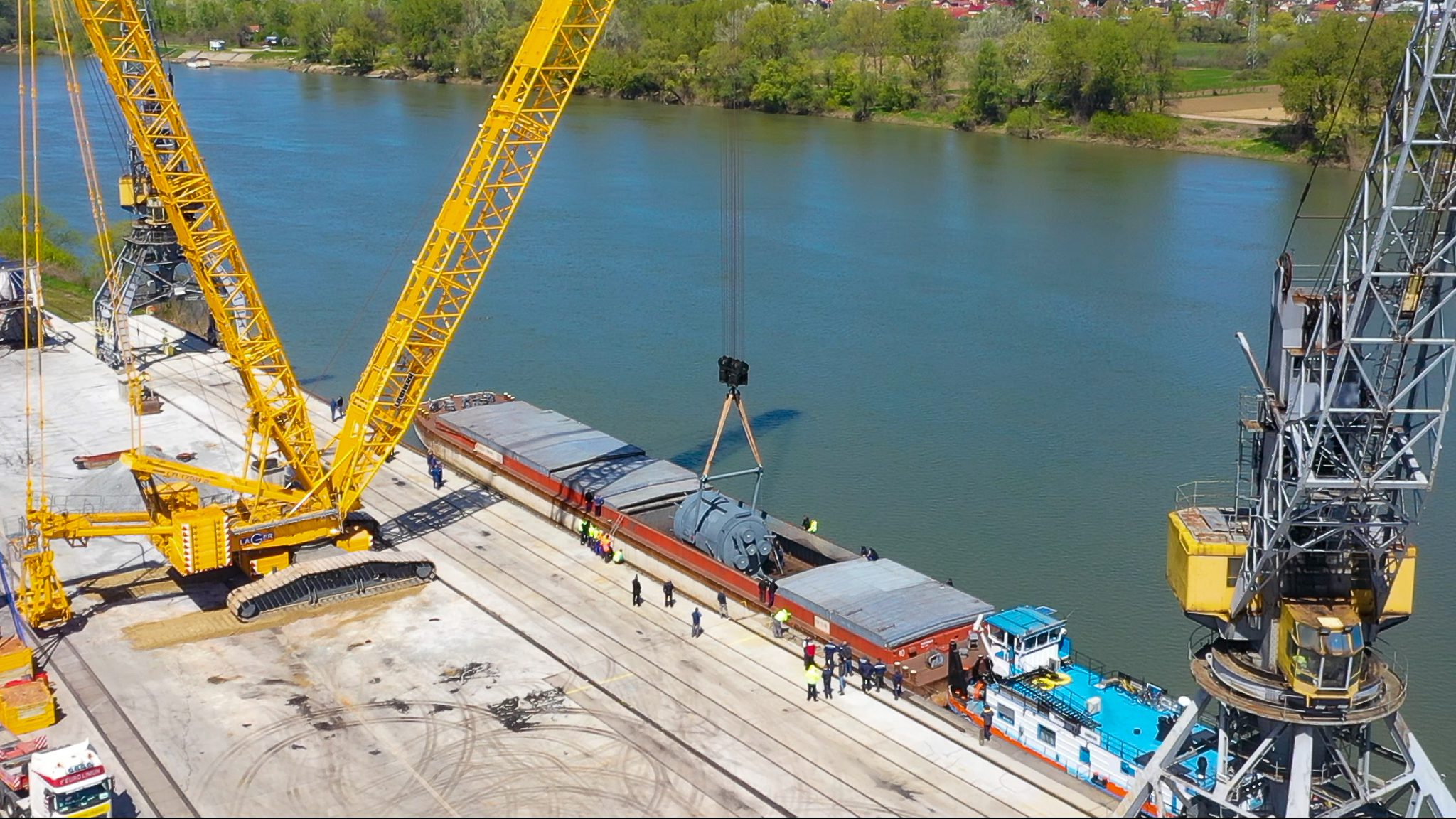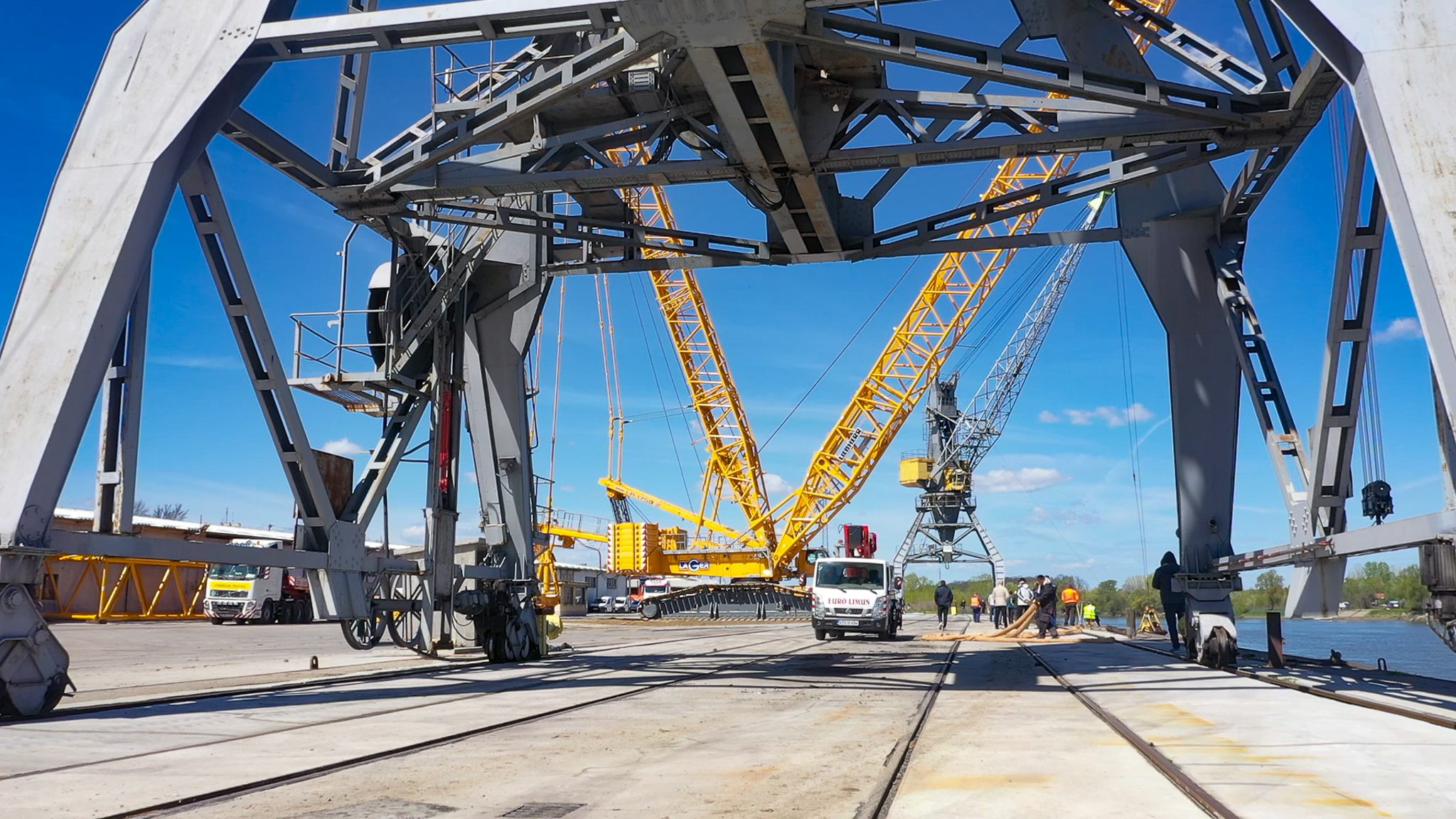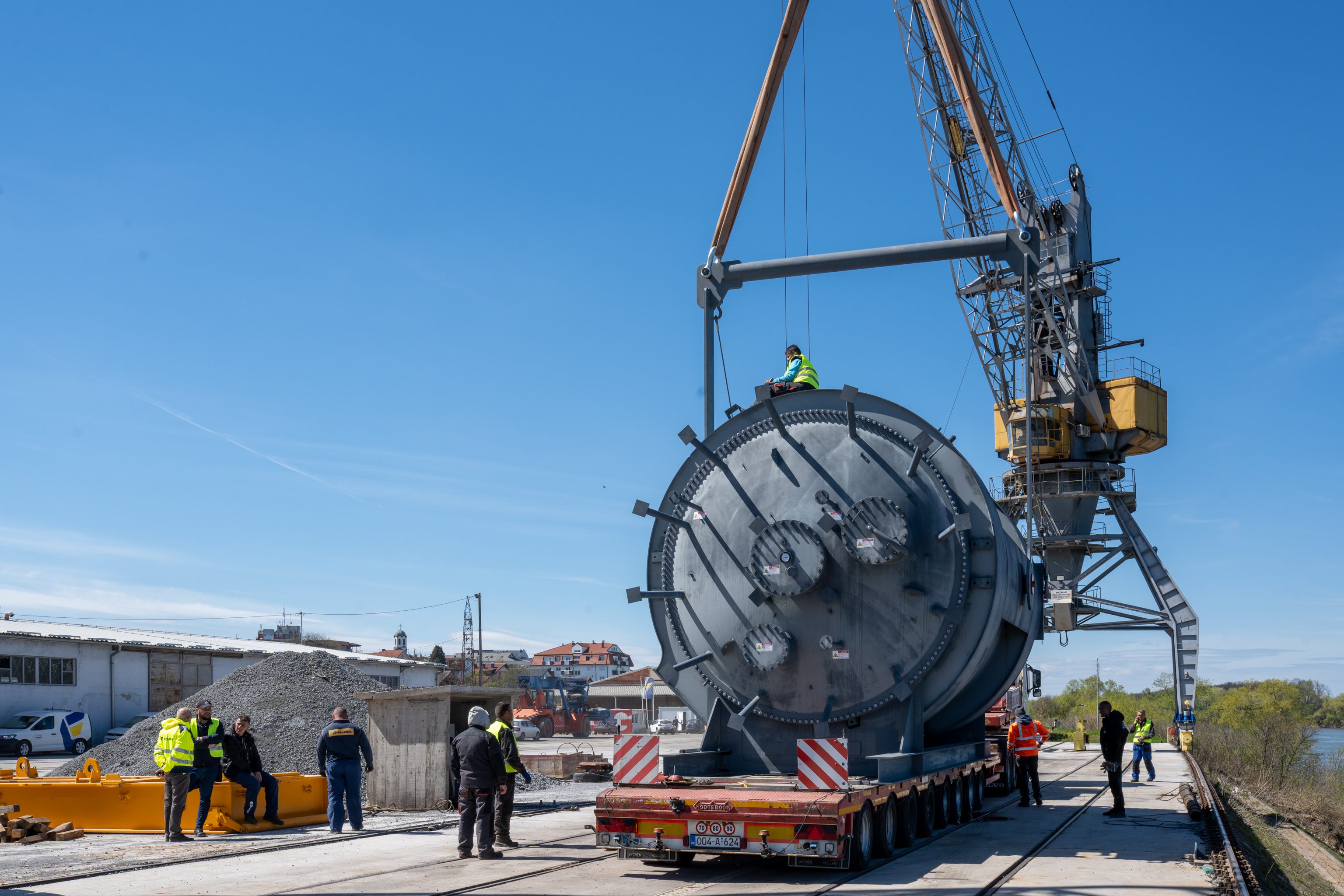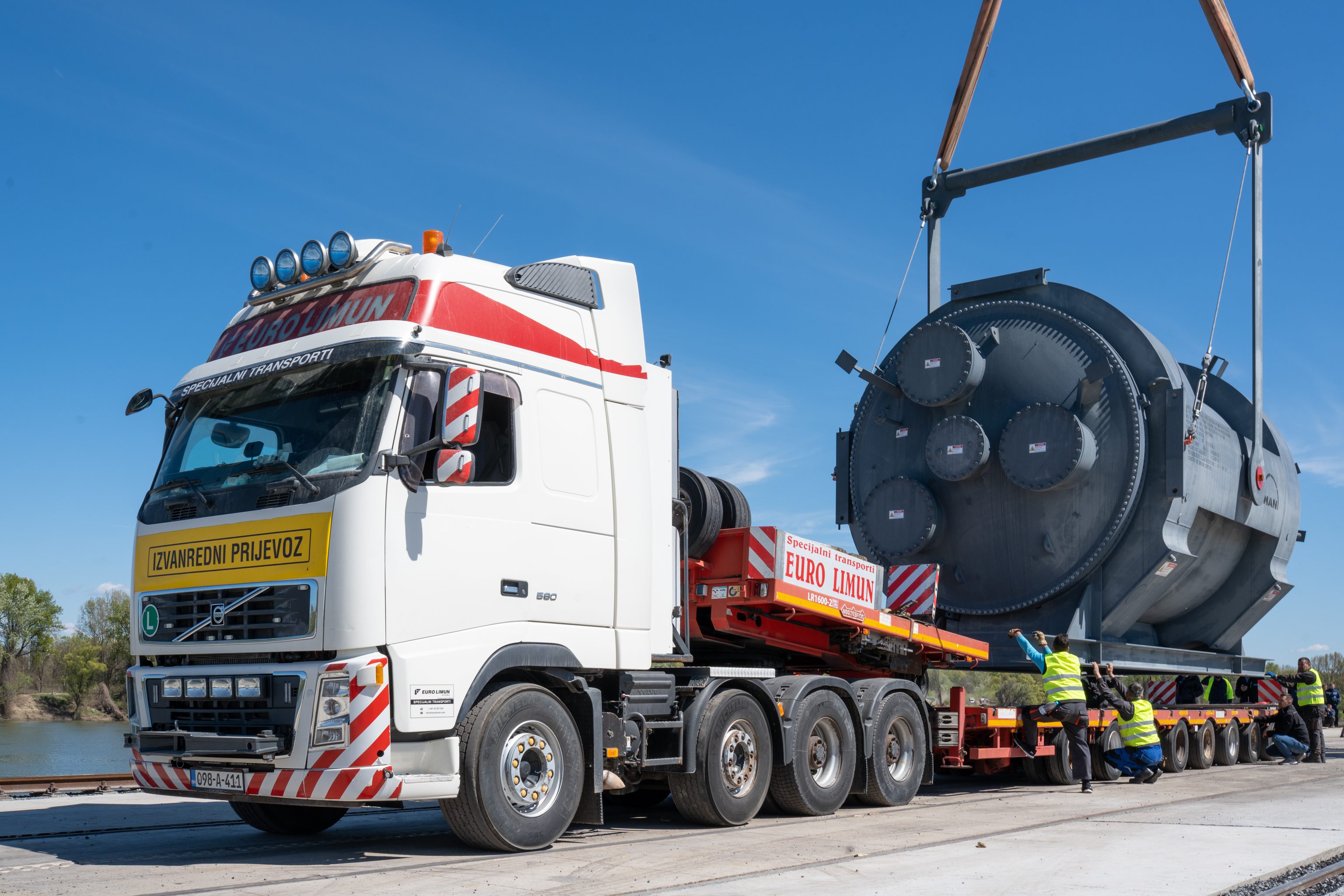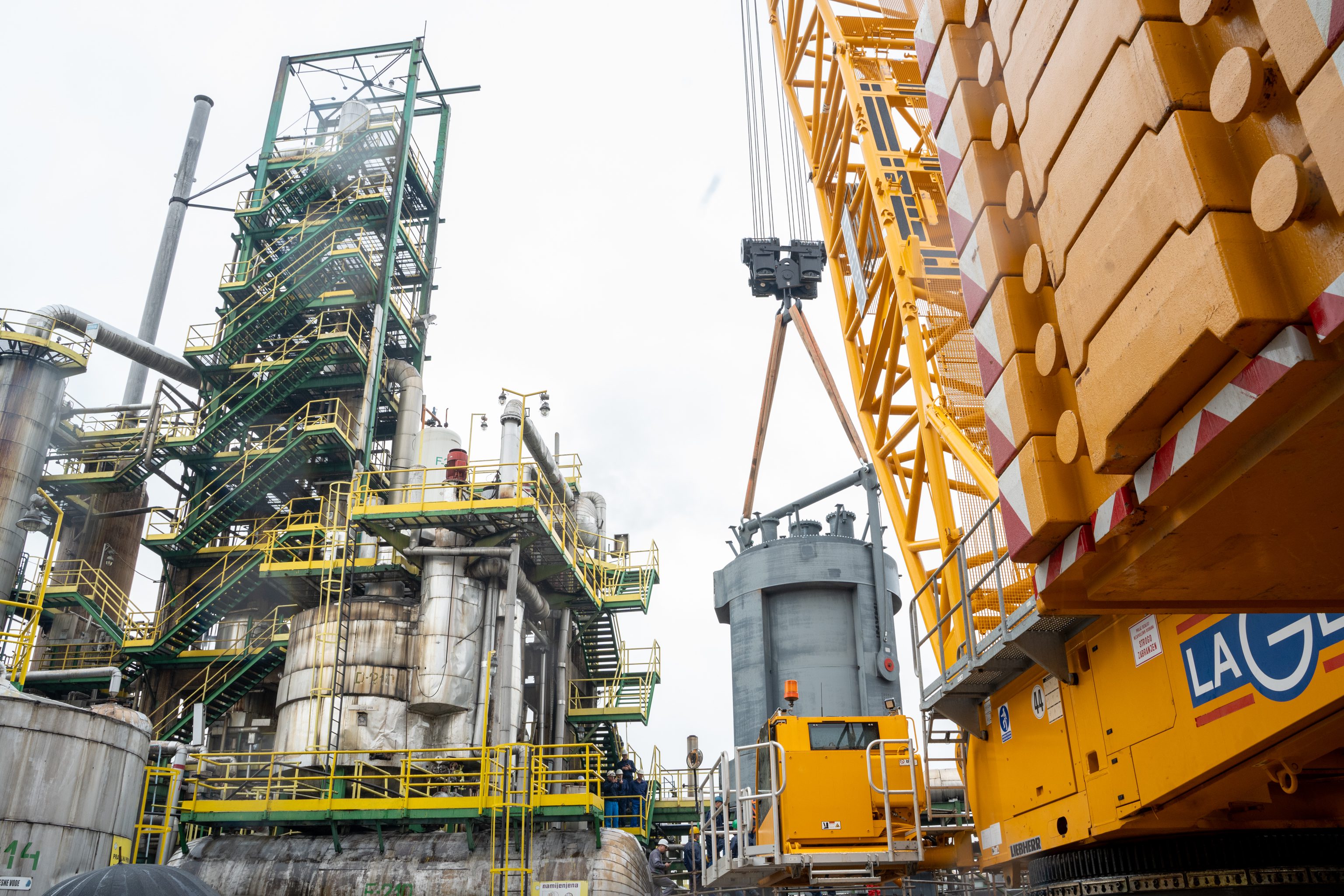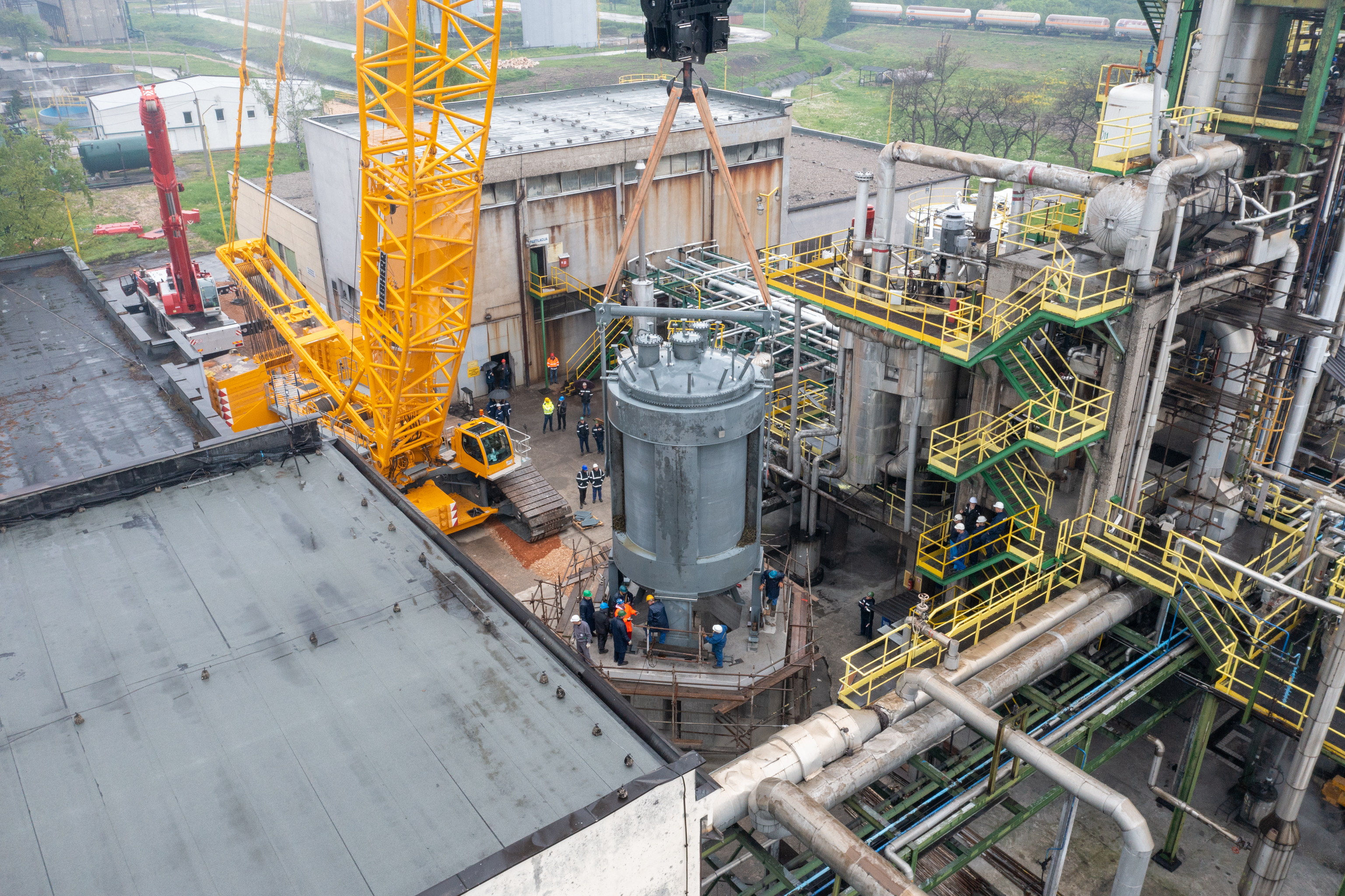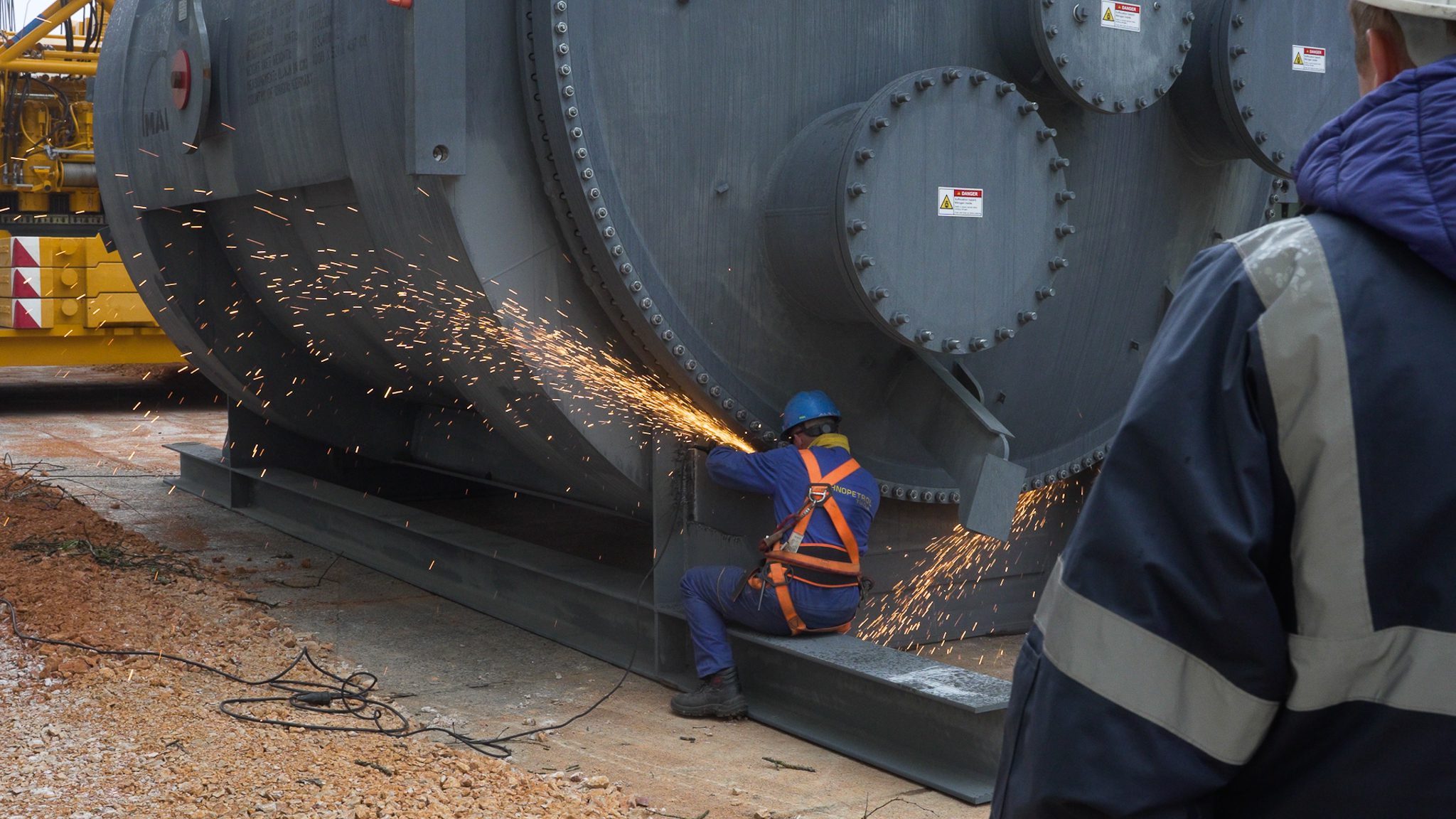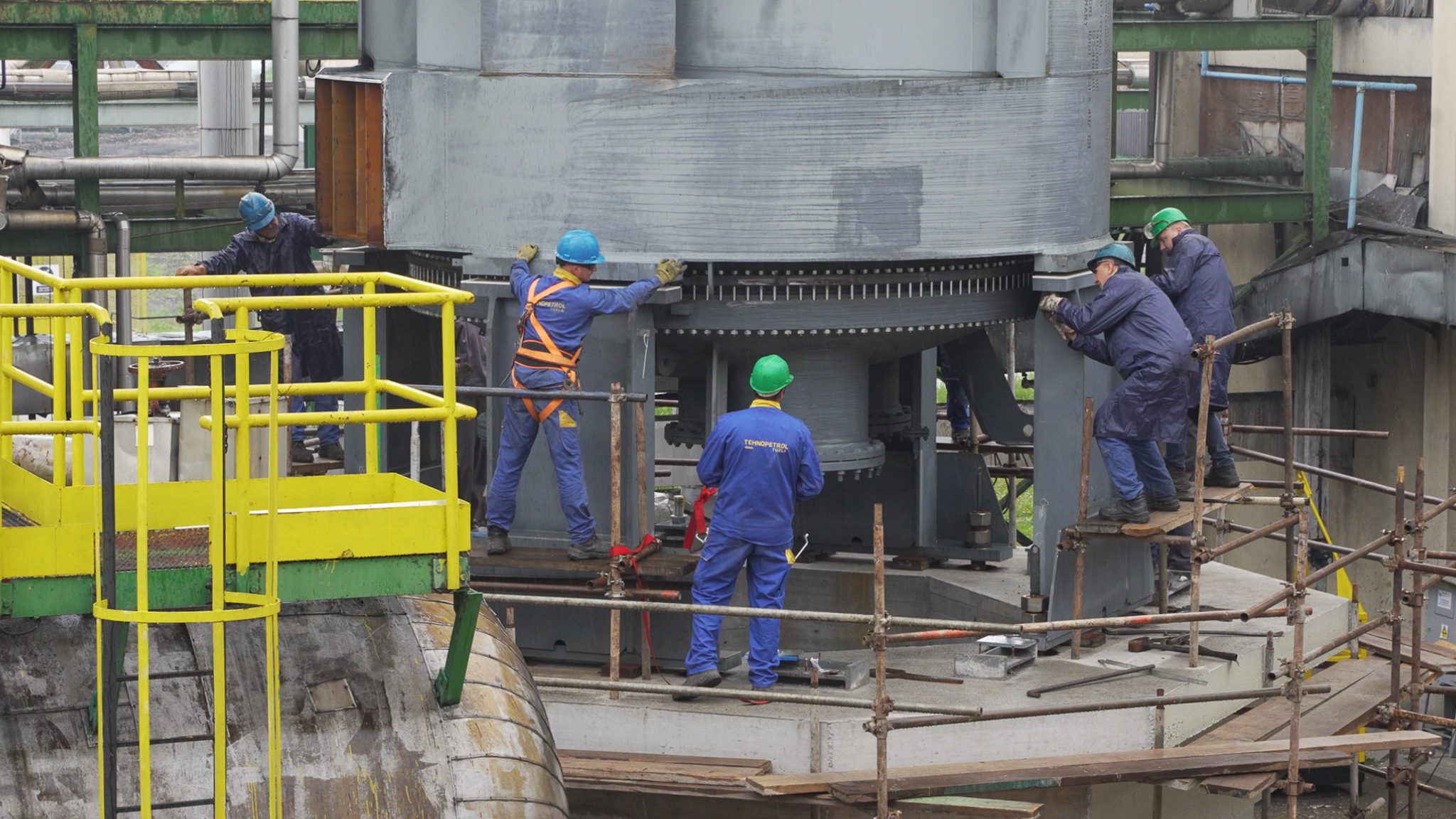The implementation of the project of increasing the plant’s production capacity is underway at GIKIL’s Maleic Anhydride (MAP) Plant. Along with the procurement of the reactor, this is the biggest post-war investment, whose construction began in 2021 and full transition to production with the new reactor is planned for 2024.
Following the latest technologies, with the aim of increasing production capacity, from the current 10,000 tons to 13,000 tons and potentially increasing the annual capacity to 15,000 tons all in order to achieve the best yield and the highest selectivity, reduce the generation of unwanted by-products and make better use of distillation system, GIKIL has chosen a modern single-size reactor of larger dimensions with the highest possible efficiency.
The useful life of the old reactor, which was commissioned in 1984, expired at least 15 years ago. However, until now, there has apparently never been enough will or funds to replace everything and ensure the smooth operation of the plant, which in itself shows how big and important this investment is,” said Almin Suljić, Executive Director for Production at GIKIL.
The first phase, which includes providing the basic engineering for production increase, is now complete.
“The basic engineering includes the replacement of the reactor, which has not been changed for 40 years, then the replacement of the compressor and the tank for clean AMK as well as the installation of a new tank for crude AMK.
Furthermore, the plan is to replace the following: the salt tank, the gas cooler and aftercooler, the boiler water preheater, the distiller heater and the butane evaporator heater. We are also planning to replace the pumps and the transformer, install an acid cooler and the fourth pastillator, upgrade the automatic control system, and expand the butane storage from 1,000 to 2,000 cubic meters,” explains Ermin Mujkić, Director of Maleic Anhydride Plant.
Along with the project of increasing the plant’s production, also another important project is underway.
“This refers to the project for the technological wastewater treatment from the production process. As part of the basic engineering, the project includes the separation of the solid part of fumaric acid from technological wastewater and its use for commercial purposes. “The treatment of the collected filtrate is the second phase of the project, and we will deal with it from the end of August,” Mujkić said.
The Maleic Anhydride Plant was commissioned in 1979 with benzene as a raw material, and the entire process was based on the catalytic reaction of benzene oxidation. Starting in 2006, the raw material has been changed to the environmentally friendly n-butane.



